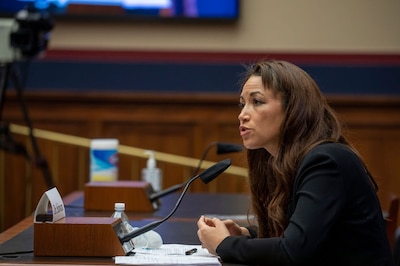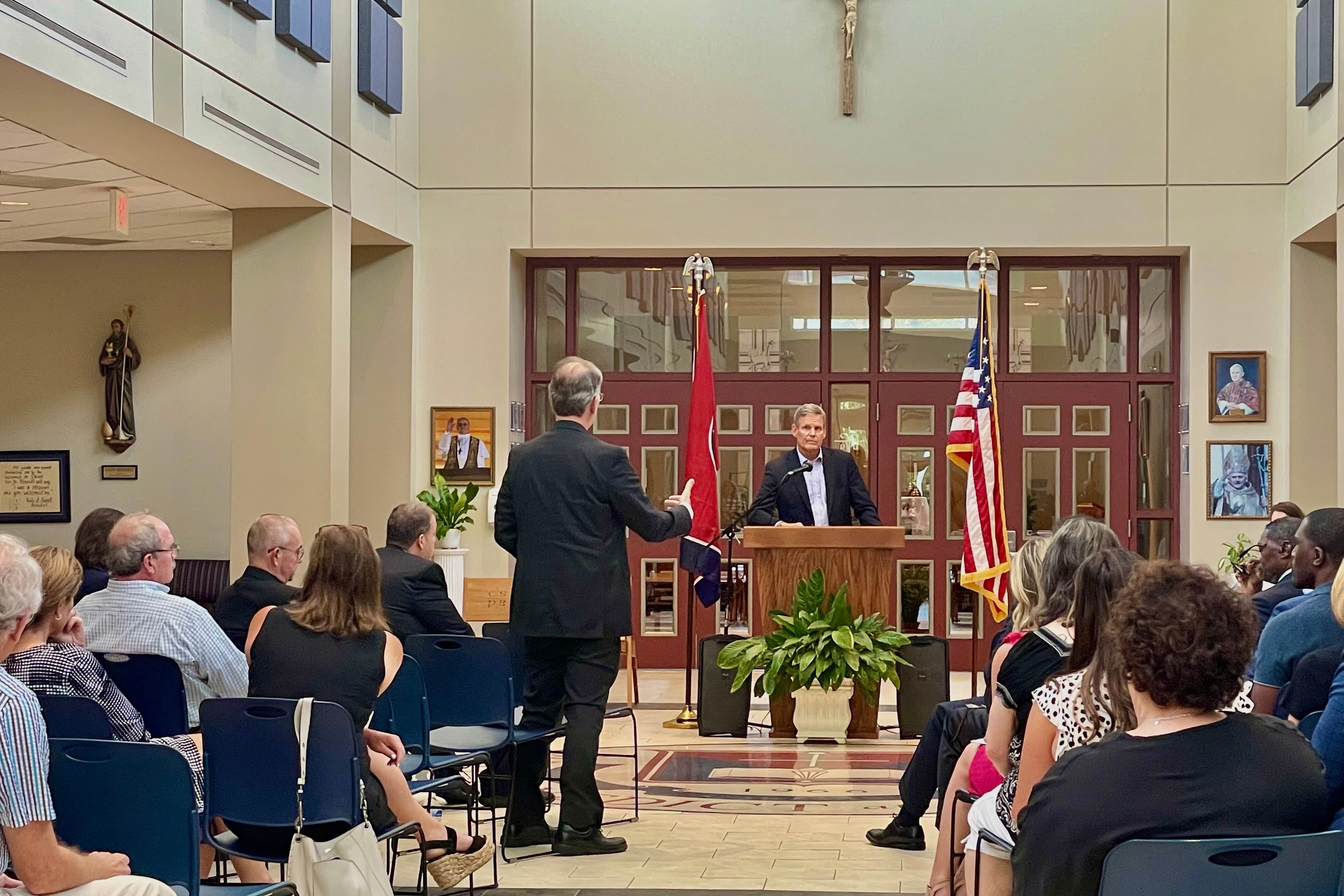Tennessee is taking steps to ensure that private schools get the opportunity to receive nearly $60 million in unused federal COVID relief funds set aside for them in 2021.
But the state is considering loosening some of the strings that the federal government initially attached to those funds. In particular, under several options outlined Monday by Education Commissioner Penny Schwinn, private schools wouldn’t necessarily have to serve a “significant” share of students from low-income families to be eligible for aid, as the Biden administration had required.
Following federal rules, Tennessee recently moved leftover money from the federal emergency assistance program for nonpublic schools to a discretionary COVID education fund managed by Republican Gov. Bill Lee. His office will have more flexibility to figure out a distribution plan that may or may not factor in student poverty levels.
And based on Lee’s discussions with several legislative leaders, their goal is to make sure private schools get a second crack at the funds, instead of using them for public education needs across the state.
“I just think (private school leaders) feel like they weren’t given the opportunity to take advantage of the resources that were put in place for them,” said Sen. Bo Watson, a Hixson Republican and legislative finance leader, who reviewed the issue Monday with other members of Lee’s pandemic relief spending accountability group.
Private school advocates cite hurdles in federal rules
At issue is the federal relief fund for nonpublic schools, through which Congress set aside $2.75 billion in 2021 for states to distribute to private schools as part of a massive pandemic relief package that included $128 billion for K-12 education.
Tennessee received nearly $74 million in 2021 to help private schools rebound from the pandemic — but had awarded only $10.2 million after the deadline for applications passed this spring.
One reason cited by private school leaders: The Biden administration’s distribution rules restricted funding to nonpublic schools that enroll at least 40% of their students from low-income backgrounds — a threshold that has been used as a “measure of significant poverty” when identifying Title I schools under federal law.
The 40% language differed from an earlier relief package approved in 2020 under the Trump administration, which sought to require districts to share education aid with private schools. According to federal data, private schools serve significantly fewer poor households than public schools do.
This year, Tennessee successfully petitioned the U.S. Department of Education to reduce the poverty threshold for eligibility from 40% to 33%, based on the average poverty rate among private schools that participated in the earlier, less restrictive COVID relief package.
But out of 481 eligible private schools, only 44 submitted an application by April 1, and only 22 of those were deemed eligible based on federal poverty data.
Ultimately, the state’s private school participation rate was 5%, compared with 19% for the smaller federal relief program in 2020.
Sarah Wilson, executive director of the Tennessee Association of Independent Schools, said untapped funding shouldn’t be perceived as a lack of interest or need by private schools. Her organization represents 61 out of hundreds of private schools that vary from large, well-funded schools in urban areas to small church-affiliated schools across the state.
“Some of our schools applied, but there were a host of reasons why many did not,” Wilson told Chalkbeat.
Beyond the poverty threshold, some were ineligible because federal law disallowed any private school that received a loan under the Small Business Administration’s Paycheck Protection Program after December 27, 2020. Still others found the state’s application process “more onerous and difficult” than under the 2020 relief package, she said.
“I really appreciate that policymakers are looking now at what happened with this funding, recognizing that it was originally earmarked for nonpublic schools, and wanting to fulfill that intention if there is interest and need,” Wilson said.
Seeking a new formula for distributing funds
Exactly how Lee’s office would distribute funds to private schools under his emergency fund is still being discussed.
While the governor’s fund has more flexibility than the previous fund that her department oversaw, Schwinn said federal law prohibits using any of the money for private school vouchers, scholarships, or education savings accounts. And all funds must be spent by June 30, 2024.

The commissioner presented four options. One would use the Trump administration’s previous rules for distribution, in which public school districts could count the number of students from low-income families in local private schools and share federal funding proportionally. Other options wouldn’t factor in poverty at all and instead would set allocations per pupil using various percentages.
“We can calculate this in whatever way you all want,” Schwinn told the group, as long as it’s for initiatives that address pre-K through higher education.
Democrats hope the governor, who fought to bring private school vouchers to Tennessee, will still factor in student poverty in any new calculations for private schools. They note that distribution of $2.2 billion to Tennessee public schools under Biden’s American Rescue Plan was based on the number of low-income families served by their districts.
“Our state talks a lot about being fiscally stable, but let’s not confuse fiscal stability with fiscal responsibility,” said Sen. Heidi Campbell, a Nashville Democrat. “In our state, we tend to consistently punish people for being poor.”
Rep. Patsy Hazlewood, who serves on the governor’s accountability group, told Chalkbeat that she wants to see data about how the various scenarios could play out. But ultimately, she wants dollars intended for private schools to go to private schools. After all, she said, while all public schools received some federal support during the pandemic, not every private school did.
“A straight per-pupil allocation would be simpler, but we don’t want to be hasty,” said the Signal Mountain Republican, who chaired the House Budget Committee during the recent legislative session.
“We also have to be mindful that we’re dealing with a finite timeline,” she added. “Schools are going to need to submit their applications soon so money can get disbursed.”
You can watch the governor’s financial accountability group’s discussions here. Schwinn’s presentation began at the 1-hour, 18-minute mark.
Marta Aldrich is a senior correspondent and covers the statehouse for Chalkbeat Tennessee. Contact her at maldrich@chalkbeat.org.





